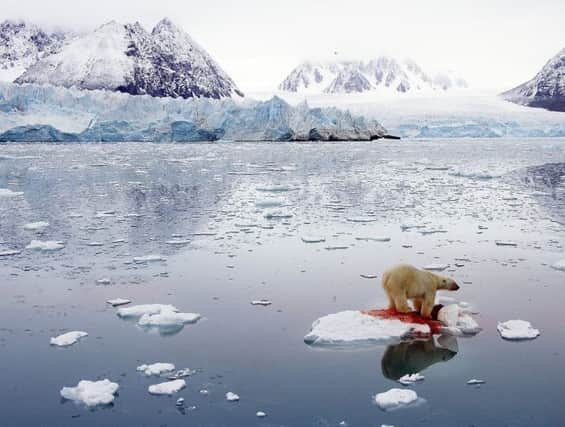Nations struggle to agree global warming deal


The yearly climate meetings rarely close on time and the two-week session in Lima, Peru, was no exception as disputes that arose in the opening days remained unresolved by Friday’s scheduled close.
Peruvian environment minister Manuel Pulgar-Vidal, hosting the talks, told delegates that a new text covered at a meeting yesterday to try to break the impasses was not perfect but reflected common ground.
Advertisement
Hide AdAdvertisement
Hide AdHowever, rich and poor nations were at odds after two weeks of talks over how to share the burden of curbing rising emissions and how to raise a promised £60 billion a year by 2020 to help the poor cope with a warmer world.
Lima is meant to establish the building blocks of a new global deal to limit climate change, to be agreed at a UN summit in Paris in December 2015, but many contentious issues remain to be decided.
“There are still some points in the agenda that need more discussion,” said Chinese delegate Zhang Jiutian.
One of the most problematic issues was getting the more than 190 countries participating to agree on what information should go into the pledges that governments are supposed to put on the table for the planned Paris agreement.
Rich countries insisted the pledges should focus on efforts to control emissions of carbon dioxide and other greenhouse gases and were resisting demands that they include promises of financing to help poor countries absorb the effects of climate change.
CONNECT WITH THE SCOTSMAN
• Subscribe to our daily newsletter (requires registration) and get the latest news, sport and business headlines delivered to your inbox every morning
Meanwhile, top carbon polluter China and other major developing countries opposed plans for a review process that would allow the pledges to be compared against one another before Paris. Their reluctance angered some delegates from countries on the front lines of climate change.
“This is not in the spirit of the momentum that was offered by the pledge between the United States and China,” Jennifer Morgan, of the World Resources Institute think-tank, said of China’s position.
Advertisement
Hide AdAdvertisement
Hide AdThe new draft text expressed “grave concern” that all promises to fight climate change were too lax to reach a goal of limiting global warming to 2C above pre-industrial times. It laid out detailed ways for nations to submit their domestic plans for fighting climate change beyond 2020 to the UN by an informal deadline of 31 March, 2015, to help lay the groundwork for a Paris accord.
It dropped a key demand by many developing nations to discuss compensation for loss and damage from climate change, such as from typhoons or rising sea levels.
“We are shocked that some of our colleagues would want to avoid a process to hold their proposed targets up to the light,” said Tony de Brum, the foreign minister of the Marshall Islands, a Pacific nation of low-lying atolls at risk of being flooded by rising seas.
Though negotiating tactics always play a role, virtually all disputes in the UN talks reflect the wider issue of how to divide the burden of fixing the planetary warming that scientists say results from human activity, primarily the burning of oil, coal and natural gas.
Historically, western nations are the biggest emitters. Currently, most CO2 emissions are coming from developing countries as they grow their economies and lift millions of people out of poverty.
“We are at a moment in the negotiations where countries need to show political leadership, to rise above narrow self-interest and make progress towards decisions that are for the larger, global good,” said the Climate Action Network, an advocacy group.
During a brief stop in Lima on Thursday, US Secretary of State John Kerry said fixing the problem was “everyone’s responsibility, because it’s the net amount of carbon that matters, not each country’s share”.
According to the UN’s scientific panel on climate change, the world can pump out no more than about one trillion tons of carbon to have a likely chance of avoiding dangerous levels of warming. It has already spent more than half of that carbon budget as emissions continue to rise, driven by growth in China and other emerging economies.
Advertisement
Hide AdAdvertisement
Hide AdScientific reports say climate impacts are already happening and include rising sea levels, intensifying heatwaves and shifts in weather patterns causing floods in some areas and droughts in others.
The UN weather agency last week said 2014 could become the hottest year on record.
Last week Greenpeace was forced to apologise for any “moral offence” it caused after a publicity stunt on the ancient Nazca Lines in Peru.
Activists from the organisation placed a banner next to a figure of a hummingbird carved more than 1,500 years ago. They were hoping to increase pressure on the UN negotiators meeting in Lima.
The Peruvian government said it would prosecute the activists who took part.
The ancient depictions of animals, including a monkey and a hummingbird, that are etched into the arid plains of southern Peru are a vital part of the county’s heritage.
Visits to the site are closely supervised – ministers and presidents have to seek special permission and special footwear to tread on the fragile ground.
SCOTSMAN TABLET AND IPHONE APPS